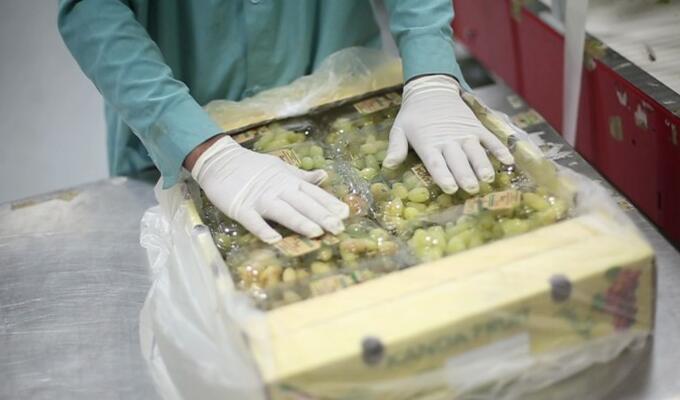

Connecting Afghan businesses to international value chains (en)
Four decades of conflict devastated Afghanistan’s economy and left it with one of the world’s largest diasporas of displaced people. War ravaged the country’s physical infrastructure and disrupted longstanding trade and transport links. The effect on the country’s workforce was even more dramatic. Six million Afghans now reside in Iran, Pakistan and other countries. An estimated 2 million more have been displaced from their homes within Afghanistan. Nearly 15% of the world’s refugees are from Afghanistan, a share second only to Syria. Since large-scale repatriation started in 2002, more than 5.2 million Afghan refugees have voluntarily returned to the country. Cross-border movement continues in both directions between Afghanistan and its neighbours. Adding to the displacement pressures is drought, exacerbated by climate change, which is affecting agriculture and with it livelihoods in the rural areas that are home to 70% of the country’s population.
Afghanistan, which joined the World Trade Organization in 2016, is keen to use trade to drive inclusive growth, development and job creation as a means to consolidate domestic peace and stability. Employment generation, especially for young people and rural populations, is critical both for social stability and for giving potential or returnee migrants an incentive to stay. Value addition – the key to more and better jobs – is a top priority for policymakers and the private sector. In work supported by ITC, the Afghan government has consulted widely with the private sector to identify international market opportunities and develop a national export strategy. It also started to overhaul the trade policy and business environment to remove bottlenecks to export success.
Yet reforms at home, even when coupled with lower barriers in export markets, are not enough to make trade happen. It is necessary but not sufficient for Afghan businesses to meet international product standards; they must also build ties with counterparts in other countries.
Despite the years of tumult, parts of Afghanistan’s economy continue to draw on the country’s rich heritage to make high-quality artisanal goods such as garments, silk and cashmere, as well as food products like saffron, dry fruits and nuts. But even these businesses struggle to tap into international value chains.
The solution
ITC’s Ethical Fashion Initiative is working to improve the Afgan livelihoods of thousands of artisans and farmers in the fashion and fine foods sectors by connecting them to lucrative niche markets in Europe and around the world. The aim is to use responsible trade, anchored in ITC’s ethical trade compliance and capacity-building framework, to raise incomes and create jobs, particularly for displaced people, returnees and potential migrants.
In Kabul and the western city of Herat, ITC has joined hands with six social enterprises – two in the silk and clothing industries and the remaining four dealing in saffron, dry fruits and nuts – by supporting them with market connections and product development advice, as well as technical expertise to upgrade business processes and increase quality and efficiency.
Market ties have been made to buyers including restaurant chefs in the United States, Spanish spice retailer Fleur de Sel and Berlin-based fashion brand Zazi Vintage. The food-sector MSMEs received advisory services on improving product packaging, quality, traceability and compliance with the Ethical Fashion Initiative’s code of conduct for labour practices, gender equality and environmental protection. ITC is working with a network of around 30 silk spinners, weavers and natural dye experts to produce new fabrics for international partners and to catalyse investment in increased production capacity with spinning equipment imported from India.
One of the social enterprises, Zarif Design, is in a joint venture with Zazi Vintage to produce a line of clothing made in Afghanistan. It is scheduled to go on sale in spring 2019 on MatchesFashion.com, an online luxury goods retailer.
In its first year of implementation, the initiative has already led to sales of $450,000, principally for saffron sold to buyers in Canada, Spain and the United States. It has contributed to creating jobs and raising incomes for close to 300 artisans and farmers, many of them returned migrants and internally displaced people, with approximately 1,000 people in the broader supplier network benefiting from the sales.
The future
Having received additional funding, ITC is set to build on the partnerships it has created in Afghanistan to expand to more products, markets and social enterprises, amplifying its contributions to sustainable development and peacebuilding.
Future work will encourage the adoption of climate-smart agricultural techniques intended to mitigate the effects of drought, which now displaces as many people in Afghanistan as conflict. In addition, it will promote diversification to reduce households’ exposure to price and demand shocks. In practice, this would mean that a single farming household would have multiple sources of income, some linked to food, such as mulberries or almonds, and others linked to fashion, such as silk cocoons or cashmere goats. It would require a shift from current practice in which farms typically commercialize only one crop and grow others in small quantities.
Another focus will be to attract new investment into Afghan social enterprises.




